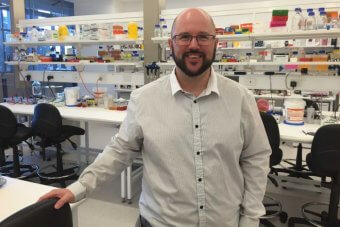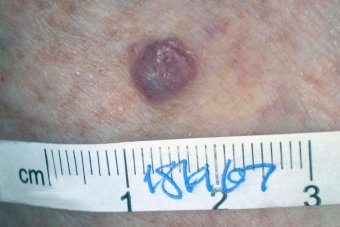New genetic melanoma risks uncovered in Queensland-led skin cancer study
Source: ABC.net, August 2015

Source: ABC.net
Queensland-led melanoma study has uncovered five new gene regions that increase a person’s risk of developing the deadliest form of skin cancer.
A team from QIMR Berghofer Medical Research Institute took a lead role in the international project, the largest study of its kind, which examined more than 12,000 melanoma samples.
Dr Matthew Law said the discovery moved scientists marginally closer to “unravelling the melanoma puzzle".
“The exciting thing from our point of view is that we know that genes influencing pigmentation and also genes involving mole count are very important for melanoma; but the five new regions we’ve found aren’t involved in those characteristics, so they uncovered new bits of melanoma biology," he said.
“The most interesting one is a gene involved in the telomeres, which are like caps at the end of your chromosomes that protect them from damage, and one of the genes is involved in the length of your telomeres.
“The other four regions, we have a handle on how they may influence melanoma but more research is needed."
Dr Law said the discovery could lead to better treatments and improved outcomes for patients.
Testing for genetic ‘typos’ not possible
But he said it would not be possible to test people to see if they had the genetic “typos" before they developed the disease.
“There are a few rare genetic effects that have a strong enough risk that you can test for them, but for common forms of cancers like melanoma, each of the genetic variances only give you a small amount of risk," he said.
“So it doesn’t guarantee that you’ll get melanoma, it just increases your risk.
“At the moment we don’t know enough of the variance to use genetics to diagnose risk."

Source: ABC.net
Melanoma is the most serious form of skin cancer and can grow quickly if left untreated.
Dr Law said the best way to avoid it was to practice sun safety, and to see a doctor if new freckles or moles appeared or if existing ones changed.
The latest research has been published in the prestigious journal, Nature Genetics.
